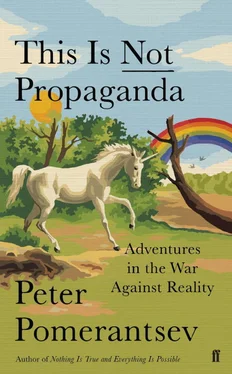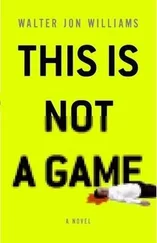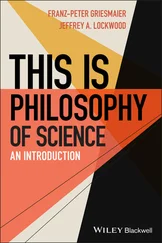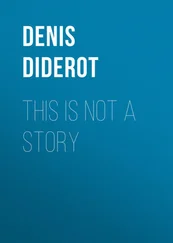The girls keep on asking for their parents’ blessing. They explain that it’s only in the Caliphate they can practise the pure version of the religion they believe in.
Rashad and the parents try to argue that the girls can practise Islam fully in England, that they don’t give their blessing to this marriage, that their ‘Caliphate’ violates all genuine Islamic ethics, justice.
‘ISIS are to Islam what adultery is to marriage,’ writes Rashad.
The girls don’t respond immediately. Could they be thinking? After a while they come back with cut-and-paste quotations in medieval Arabic, misquoting arcane scholars. Clearly these aren’t their words. Rashad can tell that their ISIS handler has stepped in and is dictating to them. The conversation, for now, has become pointless.
Rashad opens up another window on his computer to reveal the Facebook wall of a young man in the Midlands. Photos of the bungalows he rents out during his day job as an estate agent sit next to conspiracy videos ‘proving’ terrorist attacks in Europe are ‘actually’ CIA; comments about how he prefers his new Samsung to his old iPhone intermingle with clips of preachers advocating the killing of gays. He writes about how he feels sickened by the sight of drunks on a Friday night while British drones hit innocent Muslim children in the Middle East. ‘It’s a duty to support the Khilafah. The land of the Kuffar will never be a home for the believer!’
Rashad direct-messages him, explains he was once part of a radical Islamist group himself, but left. Does the young man in the Midlands want to talk?
At any one moment he might be involved in dozens of such conversations online. For reasons of privacy, data protection and security the extracts above minimise, mix and blur the personal details of his conversations. Though I’ve tried to make them as faithful as possible within such rules, Rashad rolls his eyes every time I try to squeeze his ‘interactions’ into neat little scenes with clear plot lines like in a TV drama. In reality it doesn’t work that way. There are no clear beginnings and endings. Everything is bitty, smudged. A lot of the time success is measured just by getting an ‘at risk’ individual to respond to Rashad. If 5 per cent answer when he contacts them, that’s already success. Conversations can take years, and even if you can ‘engage’ someone, it can be hard to help them. Rashad eventually helped persuade the young women that they should go back to their parents. But there was no way for them to physically escape from ISIS territory. There has been no news of them since then, even after ISIS was pushed out of Iraq and Syria.
When Rashad initially engages with an ‘at risk’ individual online, his first job is to work out that person’s motivations. Are they driven by political passions, a radical who just happens to be Muslim? A tell-tale sign would be if they accused Rashad of being an agent of Western imperialism. Or are they actually interested in religion? A personal grievance? Mental health issues? Or a combination of the above?
Then Rashad tries to parse the logic he knows recruits have been subjected to, find the contradictions. When they argue it’s a religious duty to unite in one state and impose Sharia, Rashad points out that since the time of the Prophet there have always been different Islamic empires and rulers; there’s no one model. Or when they suggest cartoons of Muhammad should be banned in the West, Rashad asks them whether that means one should ban the Koran too? Surely if one side has freedom of speech, the other should too? Or if they were to claim the West makes up Islamist terrorist attacks, but that terrorism is a natural response to Western foreign policy, Rashad focuses on the contradiction of claiming that terrorist acts are both invented and justified.
And then he will zero in on one of their core false beliefs – let’s say Holocaust denial – and overpower them with so much evidence it becomes irrefutable. After all, Rashad argues, how do we know about the existence of the Prophet? Because authorities confirm it. We have historical evidence. Tradition. Conspiracy theories undermine the entire premise of Islam…
Rashad tries to help those he talks to understand how they have been manipulated, to break down the idea that one’s Islamic identity is inherently mutually exclusive to a British (or American or Danish) one.
But there’s a problem. The types of thinking he looks to unwind, the belief in conspiracies, the ‘othering’, is now becoming ever more pervasive. ‘Extremist’ should not be confused with ‘marginal’ or ‘fringe’. An extremist movement can be the main one in a country. Indeed, it is increasingly hard to tell where the centre and the fringe are these days. One of the barometers the ISD uses for its work is the ‘Positive Peace’ index, which has an indicator called ‘the acceptance of the rights of others’. [3]And that particular indicator has plummeted in Europe and North America particularly, even as movements that push a mindset which ‘posits the superiority and dominance of one “in-group” over all “out-groups”’ surge.
Looking around, Rashad even sees politicians from long-established parties adopting a version of the approach popularised by organisations such as Hizb. One chooses a theme – religion, immigration, an economic principle – then builds it up so that it becomes the marker of who you are, not just a policy to be debated but a line on the other side of which everyone is deemed untouchable, lassoing the whole with conspiracies that divide ‘us’ from ‘them’.
‘In religious terms we would call it sectarianism,’ says Rashad, ‘identity masquerading as ideology.’
In a recent report the ISD described the environment it works in as a ‘liquid’ society, invoking a world where old, more solid social roles have slipped the leash, where information moves so easily it fractures old notions of belonging, where a sense of uncertainty pervades everything and where all sorts of forces can more easily reshape you. [4]
Pop-Up Populism
‘All politics is now about creating identity’ – that was the argument a spin doctor made as we sat in a bar in Mexico City, the terrace so shaded by dense foliage it seemed like night down below, while the sky was curaçao-blue above. He explained to me that the old notions of class and ideology were dead. When he ran a campaign now, he had to take disparate, discrete interests and unite them under a new notion of ‘the people’.
The spin doctor wore a pinstripe shirt, his hair was slicked back – he looked quite the yuppie. ‘Populism is not an ideology, it is a strategy,’ he asserted, invoking two theoreticians from the University of Essex, Ernesto Laclau and Chantal Mouffe, who first coined the notion of ‘populism as strategy’, though they had meant it to advance a new sort of socialism. I was surprised at his choice of favourite theorists – he didn’t look like much of a socialist himself. He told me his personal preference was for the left, but he would work with anyone who paid the rent.
The nature of social media encourages populism as a strategy. Take a look at things from the point of view of the spin doctor. People on social media are organised across vastly different interests: animal rights and hospitals, guns and gardening, immigration and parenting and modern art. Some of these might be overtly political, while others are private. Your aim is reach out to these different groups in completely different ways, tying the voting behaviour you want to what they care about the most.
This sort of micro-targeting, where one set of voters shouldn’t necessarily know about the others, requires some big, empty identity to unite all these different groups, something so broad these voters can project themselves onto it – a category like ‘the people’ or ‘the many’. The ‘populism’ that is thus created is not a sign of ‘the people’ coming together in a great groundswell of unity, but a consequence of ‘the people’ being more fractured than ever, of their barely existing as one nation. When people have less in common than before, you have to reimagine a new version of ‘the people’.
Читать дальше












